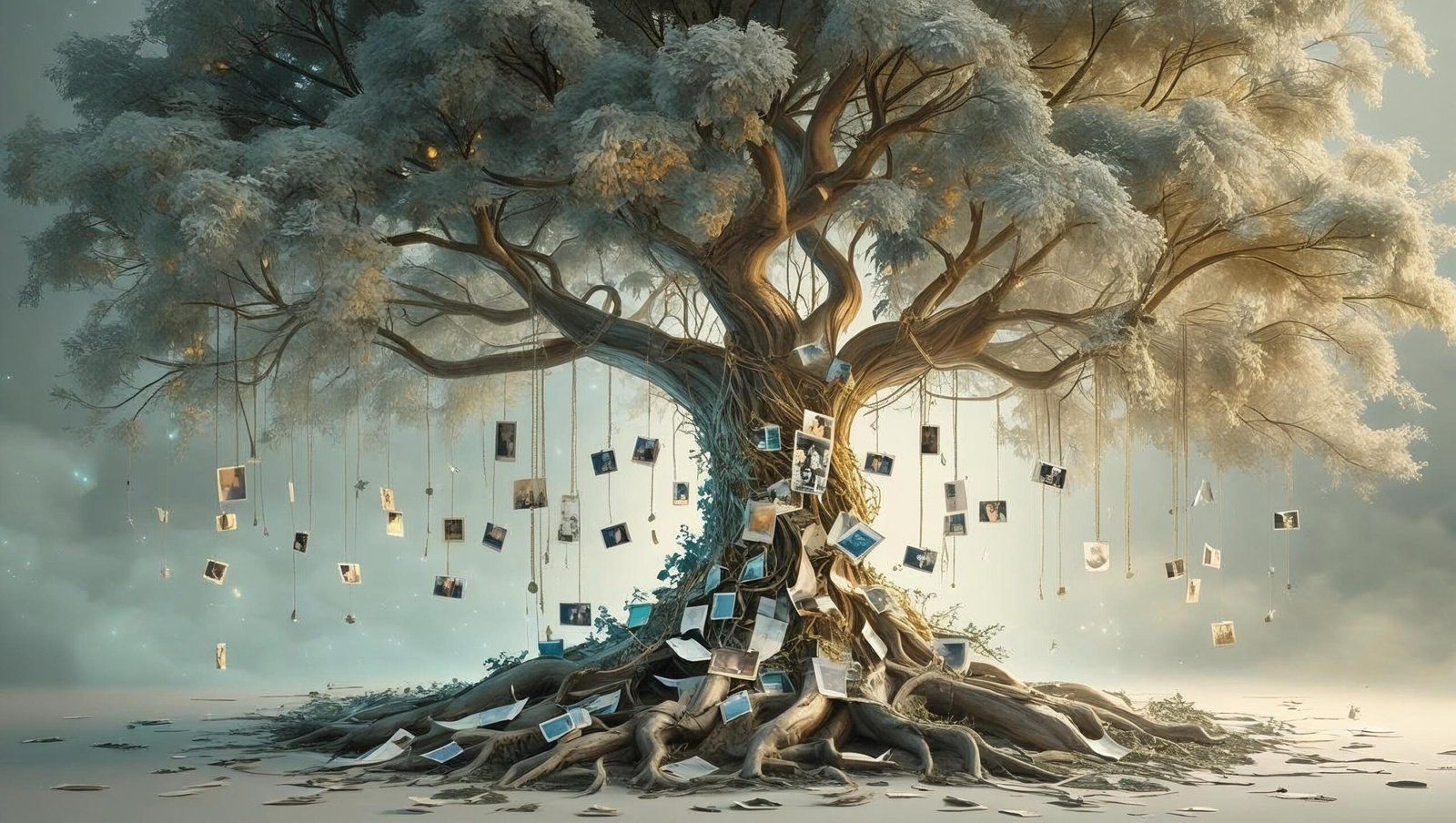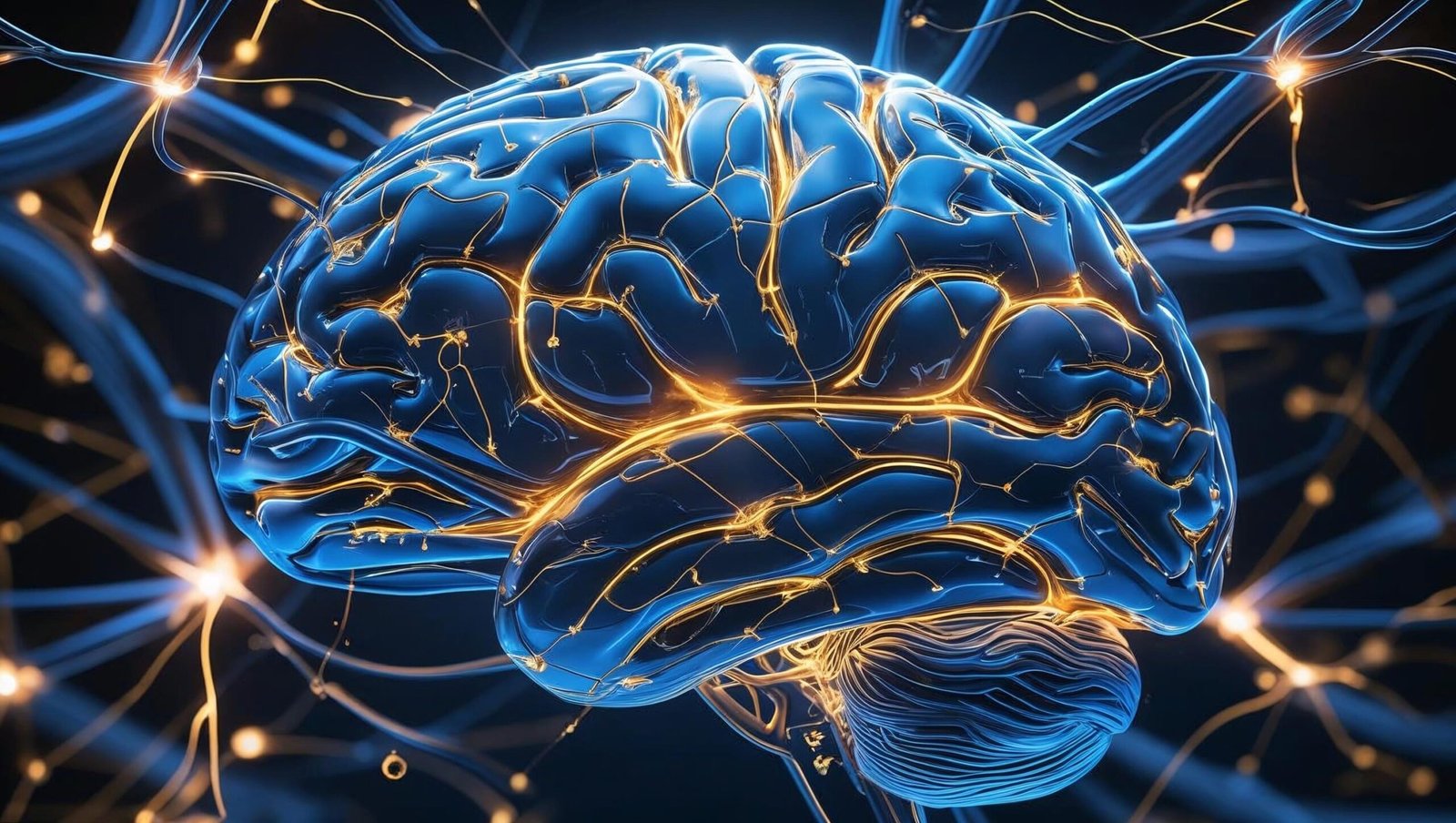Introduction
Why We Remember by Charan Ranganath is not merely a book on memory; it is a deep exploration of the human mind, a philosophical reflection, and a scientific revelation. In a world overwhelmed with information, we often underestimate the power of memory in shaping our identity, choices, and destiny. This book unravels the mystery of why we remember certain events, why we forget others, and how memory is far more than a storage mechanism—it is the foundation of who we are.
In this long-form review, we shall explore the most compelling themes, lessons, and implications of Why We Remember. Readers searching for Why We Remember will not only find a detailed book review but also a profound analysis of how memory affects personal growth, relationships, mental health, and the very essence of human existence.

The Purpose of Memory
One of the central arguments in Why We Remember is that memory is not simply about archiving facts. It exists to help us adapt, survive, and plan for the future. Charan Ranganath explains that remembering the past is not an exercise in nostalgia but a practical function that helps us make better decisions.
For instance, we do not remember every meal we have eaten, but we might vividly recall a time when food made us ill. This selective retention ensures survival by guiding our future choices. Thus, memory is not about hoarding details but about crafting a mental guide for life.
Expanding further, it becomes clear that the ability to remember is fundamentally tied to prediction. The human brain is constantly simulating future possibilities, and these simulations draw upon fragments of past experiences. When a person considers taking a new job, for example, their decision-making process is subtly guided by remembered successes or failures from previous roles. Memory operates as a rehearsal mechanism, preparing us for challenges we have yet to face. This insight underscores that memory is forward-looking as much as it is backward-looking. Why We Remember teaches that our ability to simulate the future relies heavily on remembering past patterns.
Memory and Identity
Our identity is inseparable from our memory. The stories we tell about ourselves, the triumphs we cherish, and even the traumas we endure—all shape our sense of self. Ranganath emphasizes that memory is deeply tied to our emotional and psychological wellbeing.
Without memory, identity collapses. Imagine waking up each day without recollection of who you are. The terrifying loss of self is vividly illustrated in cases of amnesia, where individuals struggle to reconstruct meaning. Why We Remember reminds us that memory is not only personal but collective, shaping cultures, traditions, and national identities.
Furthermore, memory provides continuity across time. A person who has endured hardship may look back and find strength in the fact that they survived it. Conversely, individuals who remember only their failures often struggle with confidence. Identity is not a static concept but a dynamic narrative, and memory is the raw material from which that narrative is constructed. Understanding Why We Remember allows us to see how identity is continuously shaped by recollection.
Ranganath also discusses how false memories complicate our understanding of identity. People often misremember events, yet these reconstructed versions can become integral parts of their self-concept. While some may see this as a flaw, it highlights the adaptability of memory. We are not rigidly bound by absolute facts but instead capable of reshaping our past to create meaning and resilience.
The Neuroscience of Memory
Charan Ranganath, being a distinguished neuroscientist, grounds his book in scientific authority. He explains the brain’s intricate networks that enable us to recall, reinterpret, and even reshape memories. The hippocampus, prefrontal cortex, and amygdala play critical roles in encoding and retrieving experiences.
However, memory is not a flawless recording device. Instead, it is reconstructive, prone to distortion, embellishment, and bias. This imperfection may appear as a weakness, but it is actually a strength, enabling humans to adapt creatively, to learn from mistakes, and to envision possibilities.
In expanding this discussion, one must consider how technology has altered our relationship with memory. Today, smartphones and digital archives act as external memory banks, storing information that once had to be memorised. While convenient, this outsourcing may weaken certain neural processes. Yet, Ranganath argues that our brain’s design has always been selective. Even before the digital age, humans relied on external aids such as writing, rituals, and oral traditions. The essential lesson of neuroscience is that memory is not about perfect recall but about efficient adaptation. Why We Remember shows that even in the age of technology, the human brain retains its adaptive memory functions.

Emotion and Memory
Among the most powerful insights in Why We Remember is the intimate relationship between emotion and memory. Neutral events are easily forgotten, while emotionally charged moments—whether joyous or tragic—are etched deeply in our consciousness.
Ranganath demonstrates that our brain prioritises memories that are relevant to our survival or wellbeing. This explains why people vividly recall first loves, accidents, or achievements, while mundane details vanish. The lesson is that emotions are not obstacles to rational thought; they are essential to memory’s endurance.
Expanding on this, consider the cultural role of emotion in memory. Weddings, funerals, and festivals are not simply social gatherings but emotional anchors that create enduring memories. Nations too, preserve emotionally resonant events—wars, independence movements, natural disasters—as part of their collective consciousness. These memories endure precisely because they are charged with feeling. Why We Remember illustrates that emotional intensity is what makes certain experiences unforgettable.
Memory and Forgetting
Forgetting often carries negative connotations, yet Charan Ranganath reframes it as a gift of evolution. If we remembered every detail of every day, our minds would collapse under the burden. Forgetting allows us to focus on what truly matters.
In the book, Ranganath explains that memory is a balance between retaining and discarding. Forgetting irrelevant details frees mental space for creativity, learning, and resilience. Thus, memory without forgetting would paralyse the human mind.
Consider an analogy: a library that contains every scrap of paper ever written would be impossible to navigate. What makes a library useful is curation, the careful selection of material worth preserving. Likewise, forgetting is not a flaw but a form of mental curation. It allows the mind to maintain clarity and efficiency.
Collective and Cultural Memory
Memory is not limited to individuals. Nations, communities, and families all participate in collective memory. Stories passed down through generations, traditions preserved in rituals, and even shared traumas bind people together.
Ranganath highlights how collective memory shapes history itself. What societies choose to remember—or to forget—can define their future. In this sense, memory transcends personal psychology and becomes a reflection on humanity at large.
Consider how memorials, monuments, and historical commemorations function. They are not merely reminders of past events but instruments of identity formation. A nation that remembers its struggles for freedom nurtures patriotism, while one that erases or distorts its past risks repeating mistakes. Thus, memory is inseparable from morality and politics. Why We Remember provides a framework to understand the moral and social significance of collective memory.

Practical Lessons from Why We Remember
Charan Ranganath does not leave memory as a purely academic subject; he provides practical strategies for strengthening recall, improving focus, and nurturing healthy memory habits. Some lessons include:
-
Pay Attention – Focused awareness encodes memory more effectively.
-
Embrace Emotion – Emotion enhances retention; do not dismiss feelings as irrelevant.
-
Use Spacing and Repetition – Revisiting information strengthens long-term memory.
-
Sleep and Rest – Rest consolidates memories; neglecting it undermines recall.
-
Tell Stories – Narratives connect facts to meaning, making them unforgettable.
Expanding these further, one realises that lifestyle choices have profound implications for memory. Diet, exercise, and stress management all influence cognitive function. Sleep, in particular, is underestimated in modern society, yet it is during sleep that the brain consolidates memories. Neglecting rest, therefore, undermines not only productivity but identity itself.
Why This Book Matters Today
In the digital age, when information is externalised into devices, the importance of memory is easily neglected. Many rely on search engines for facts and calendars for schedules. Yet, memory is not about storing trivialities but about shaping meaning, empathy, and foresight.
At a time when artificial intelligence increasingly mirrors human cognition, the uniqueness of human memory stands out as a reminder of our distinct identity. Ranganath’s book, therefore, is not only timely but essential.
The relevance becomes clearer when one considers the social consequences of forgetting. In an era of misinformation and rapid news cycles, collective memory can be manipulated. What is remembered and what is erased determines how societies act. By studying memory scientifically, Ranganath equips readers to be more discerning in an age of fleeting attention spans.
Memory as the Foundation of Human Progress
To appreciate the depth of Charan Ranganath’s arguments, one must consider memory not only as a biological function but also as a civilisational force. Entire epochs of human history are preserved because memory, in its collective form, transmitted knowledge across generations. Oral traditions carried epics long before the invention of writing. Monuments, scriptures, and cultural rituals are all externalised memories that enable societies to outlast individual lives.
In this sense, Why We Remember is not a book confined to personal psychology. It is a meditation on civilisation itself. Human beings have endured wars, famines, and displacements, yet their resilience often stems from memory—memory of past struggles, memory of survival, and memory of triumph. When societies remember their darkest hours, they safeguard themselves from repeating them. When they remember their golden ages, they draw inspiration for renewal.
The book reminds us that memory is both fragile and powerful. Fragile because it can be erased, distorted, or suppressed. Powerful because it can unify nations, inspire revolutions, and preserve identities. Without memory, progress would be impossible, for no society can advance without knowing where it has been.

Memory, Trauma, and Healing
Another profound theme in Ranganath’s work is the connection between memory and trauma. Painful events, though deeply unsettling, often remain embedded in the mind. Survivors of war, abuse, or disaster may find themselves haunted by recollections they wish to forget. Yet, paradoxically, these memories are also part of the healing process.
Why We Remember explains that the mind does not store trauma merely as information but as an ongoing emotional experience. The reactivation of such memories can trigger anxiety or despair. However, through therapy, storytelling, and reflection, these same memories can be reframed. The brain’s reconstructive nature allows survivors to reinterpret the past, not to erase pain but to give it meaning.
This insight offers hope. Trauma does not have to imprison individuals forever. Memory can be harnessed as a tool of recovery, turning wounds into wisdom. In this way, Why We Remember is also a call to compassion—for ourselves and for others—since every person carries hidden histories that shape their present behaviour.
Memory and Creativity
A remarkable aspect of memory, which Ranganath highlights, is its role in creativity. When artists, writers, or scientists make breakthroughs, they do not conjure ideas out of thin air. They recombine fragments of past knowledge, experiences, and impressions into new forms.
Thus, Why We Remember demonstrates that memory is not a static archive but a living workshop. Consider a musician composing a new symphony: past lessons, emotional experiences, and even unconscious impressions weave together into a melody that feels both fresh and familiar. Likewise, scientific discovery often emerges when remembered data is connected in ways that no one had considered before.
Even imagination itself is memory in disguise. When we dream of places we have never visited, our minds piece together landscapes from remembered sights and sensations. The future, then, is not a blank slate but a recombination of memory’s vast library. By reframing memory in this way, Ranganath dismantles the misconception that it belongs only to the past; in truth, memory is the seedbed of innovation.
Memory in Relationships
Human relationships are sustained by memory. Friendships are nourished by shared experiences; marriages grow stronger through recollected joys and struggles; even conflicts often revolve around what is remembered and what is forgotten.
Charan Ranganath explains that memory binds people together because it allows them to construct shared narratives. Two friends who remember a school adventure decades later feel their bond renewed. A family recalling childhood anecdotes keeps affection alive across generations. Conversely, when memory fails—such as in dementia—the emotional toll on relationships is immense.
Why We Remember illustrates that memory is not a solitary possession but a bridge. To love someone is, in part, to remember them—to recall their voice, their habits, their sacrifices. Forgetting, therefore, can feel like a form of loss. The book calls us to value memory not only for ourselves but for the bonds it sustains with others.

Ethical Dimensions of Memory
One of the most thought-provoking aspects of Ranganath’s narrative is its ethical dimension. Memory can be manipulated, distorted, or erased. History offers numerous examples of regimes that controlled collective memory through propaganda, censorship, or destruction of archives.
In today’s digital age, where information can be selectively amplified or buried, the politics of memory is even more relevant. Why We Remember reminds us that to control memory is to control reality itself. What people remember determines what they believe, and what they believe directs how they act.
Therefore, memory is not neutral. It carries moral responsibility. Individuals must strive for honesty in personal recollection, while societies must protect collective memory from distortion. Only then can memory serve as a foundation for justice rather than an instrument of manipulation.
Memory, Technology, and the Future
As artificial intelligence advances, many wonder whether machines can truly “remember.” Computers certainly store data, but data is not memory in the human sense. Ranganath distinguishes between mere storage and the adaptive, emotional, and reconstructive qualities of memory.
In fact, the very imperfection of human memory—its distortions, biases, and emotional colourings—is what makes it uniquely human. Machines may provide flawless recall, but they cannot replicate the creative reconstruction that allows us to imagine futures, forgive pasts, or find beauty in nostalgia.
Why We Remember ultimately reassures us that memory is one of humanity’s irreplaceable treasures. As technology grows more powerful, memory remains the anchor of authenticity, reminding us who we are and what we value.
FAQs
Q1: What is the main theme of Why We Remember by Charan Ranganath?
The central theme is that memory is not a passive record but an adaptive tool that shapes our decisions, identity, and future.
Q2: Is Why We Remember a scientific book or a self-help guide?
It is both. It is grounded in neuroscience but also provides practical insights for everyday life.
Q3: How does emotion affect memory according to Why We Remember?
Emotion enhances memory retention. Events linked with strong emotions are remembered longer and with greater intensity.
Q4: Does forgetting play a role in memory?
Yes, forgetting is essential. It filters out irrelevant details, allowing the brain to prioritise important information.
Q5: Why should modern readers care about Why We Remember?
Because in a digital age, memory remains a unique human power, vital for selfhood, resilience, and creativity.
Conclusion
Charan Ranganath’s Why We Remember is a masterful exploration of the science and soul of memory. It is not only a book about the brain but also about life itself. Memory defines who we are, guides our choices, and connects us with others. It is a compass, a shield, and a mirror.
For readers seeking to understand Why We Remember, this book is a revelation, offering both intellectual satisfaction and emotional resonance. It teaches us that remembering is not a burden but a blessing, not a weakness but a strength.
In a world where forgetting is easy and distractions are endless, Why We Remember calls us to treasure memory as the essence of humanity.
For more insightful reviews and reflections, visit shubhanshuinsights.com—a platform dedicated to exploring books that transform thought and enrich life.
By exploring its profound insights, readers can truly appreciate the essence of memory, mindfulness, and human experience, making Why We Remember an indispensable guide for understanding life, identity, and personal growth.